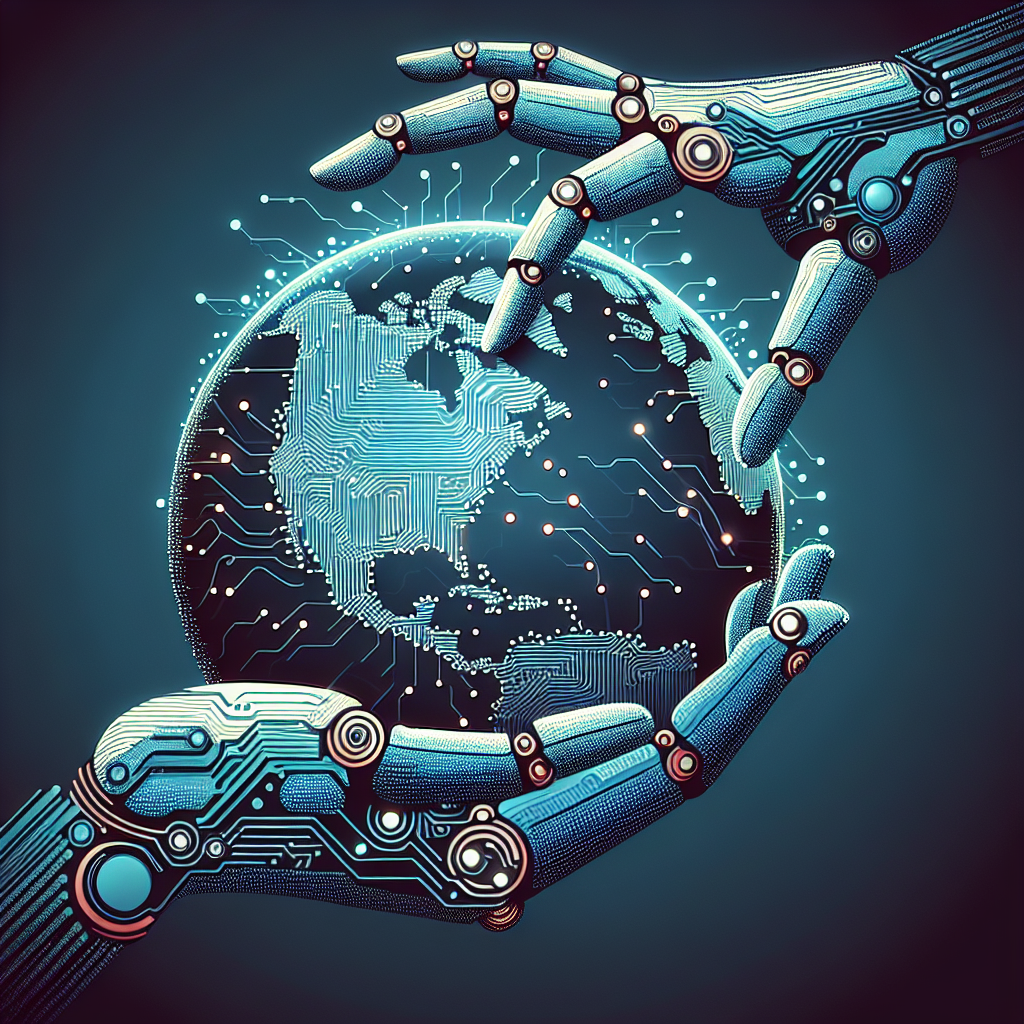Artificial General Intelligence (AGI) is a term that refers to the development of machines that have the ability to perform any intellectual task that a human can do. While this concept has been the subject of science fiction for many years, recent advancements in technology have brought us closer to the reality of AGI. As researchers and developers continue to make strides in this field, the implications for technology innovation are vast and far-reaching.
AGI has the potential to reshape the landscape of technology innovation in a number of ways. From revolutionizing industries to changing the way we interact with machines, the impact of AGI is likely to be profound. In this article, we will explore how AGI is shaping the future of technology and what it means for society as a whole.
One of the most significant ways in which AGI is reshaping technology innovation is by enabling machines to perform tasks that were previously thought to be beyond their capabilities. For example, AGI has the potential to revolutionize industries such as healthcare, finance, and transportation by automating complex tasks and decision-making processes. In the field of healthcare, for instance, AGI could be used to analyze medical images, diagnose diseases, and even assist in surgical procedures.
In addition to transforming industries, AGI is also likely to change the way we interact with machines on a day-to-day basis. As machines become more intelligent and capable of understanding natural language, we may see a shift towards more intuitive and conversational interfaces. This could lead to a more seamless integration of technology into our lives, as machines become more responsive to our needs and preferences.
Furthermore, AGI has the potential to unlock new possibilities in fields such as robotics, virtual reality, and autonomous vehicles. With the ability to learn and adapt to new situations, AGI-powered machines could revolutionize the way we interact with the physical world. From self-driving cars that can navigate complex environments to robots that can perform a wide range of tasks, the potential applications of AGI are limitless.
However, as with any technological advancement, AGI also raises a number of ethical and societal concerns. For example, there are questions about the impact of AGI on the job market and the potential for machines to outperform humans in a wide range of tasks. There are also concerns about the potential for misuse of AGI, such as the development of autonomous weapons systems or the invasion of privacy through surveillance technologies.
Despite these challenges, the development of AGI is likely to continue at a rapid pace, driven by the promise of new opportunities and capabilities. As researchers and developers work towards creating machines that are truly intelligent, the implications for technology innovation are likely to be profound. In the coming years, we can expect to see a new era of technological advancement, driven by the power of AGI.
FAQs:
Q: What is the difference between AGI and Artificial Intelligence (AI)?
A: Artificial General Intelligence (AGI) refers to machines that have the ability to perform any intellectual task that a human can do, while Artificial Intelligence (AI) is a more general term that encompasses a wide range of technologies that enable machines to perform specific tasks. AGI is considered to be a higher level of intelligence than AI, as it is capable of learning and adapting to new situations in a way that AI is not.
Q: How close are we to achieving AGI?
A: While significant progress has been made in the field of AGI, we are still some way off from achieving true artificial general intelligence. Researchers and developers continue to work towards creating machines that are capable of learning and reasoning in a way that is comparable to human intelligence, but there are still many technical and ethical challenges to overcome.
Q: What are some potential applications of AGI?
A: The potential applications of AGI are vast and varied. From revolutionizing industries such as healthcare, finance, and transportation to changing the way we interact with machines on a day-to-day basis, the impact of AGI is likely to be profound. AGI could also unlock new possibilities in fields such as robotics, virtual reality, and autonomous vehicles.
Q: What are some of the ethical concerns surrounding AGI?
A: There are a number of ethical concerns surrounding the development of AGI, including questions about the impact on the job market, the potential for machines to outperform humans in a wide range of tasks, and the potential for misuse of AGI in areas such as autonomous weapons systems and surveillance technologies. Researchers and developers are working to address these concerns as they continue to push the boundaries of AGI research.
In conclusion, the development of Artificial General Intelligence (AGI) is reshaping the landscape of technology innovation in profound ways. From revolutionizing industries to changing the way we interact with machines, the potential applications of AGI are vast and far-reaching. While there are still many challenges to overcome, the promise of new opportunities and capabilities provided by AGI is driving researchers and developers to push the boundaries of what is possible. As we continue to make strides towards creating truly intelligent machines, the future of technology innovation is likely to be shaped by the power of AGI.

